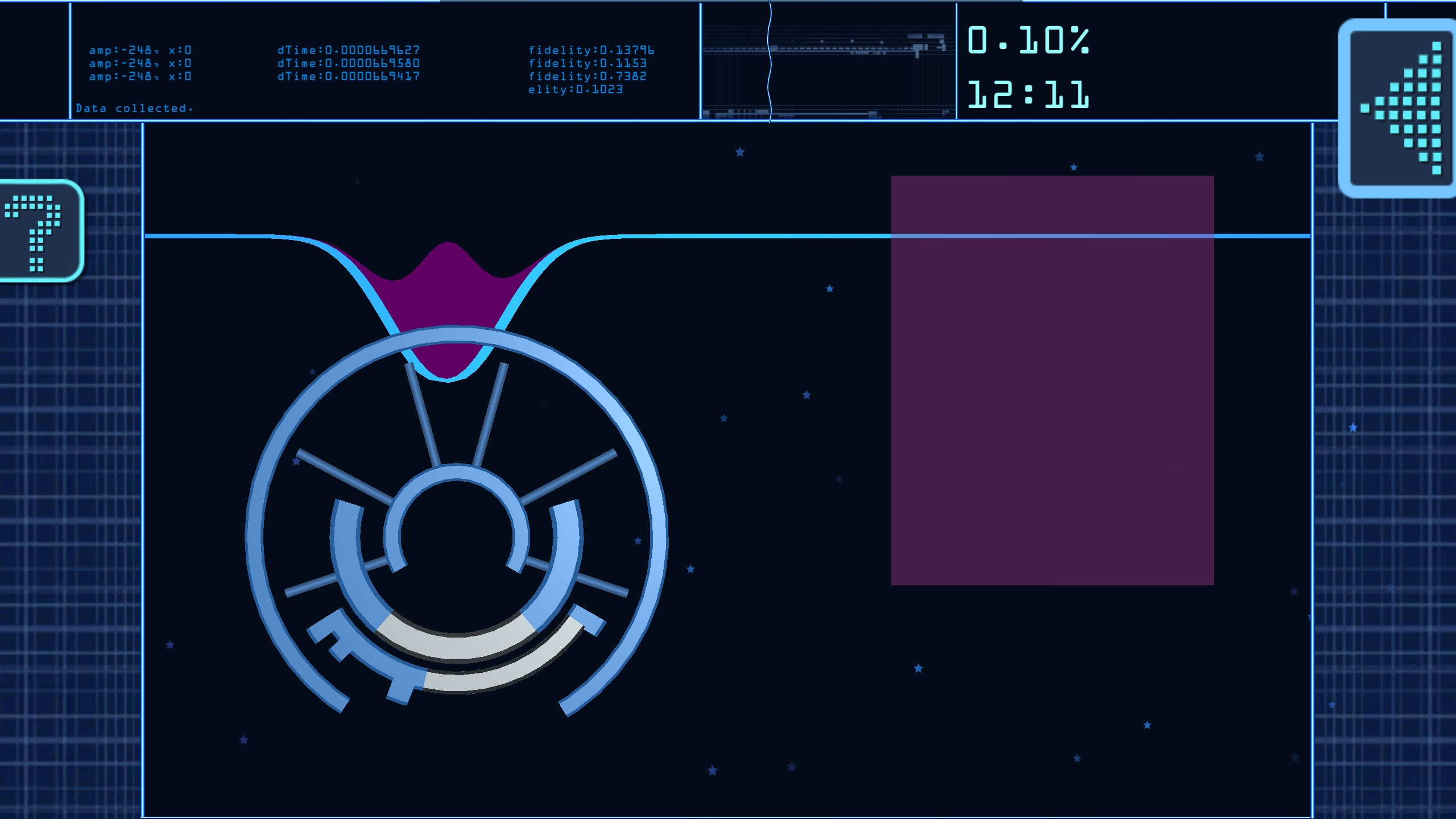No there isn't, but I've always wanted to write one.
When I was an undergrad, I thought about designing quantum computer games. The idea was to make a simulation which would get people used to quantum stuff:
Here were the ideas I had back then (never implemented past undergraduate daydreams):
- Spin-1/2 flight combat: You fly carrying a spinor, which rotates along with your changes in orientation. You have opponents that also carry a spinor. But you can only shoot an opponent when your two spinors are close to "the same" orientation. All the airplanes start off with the same spinor and the same orientation, so that really, you just have to learn to count the 360 rotations intuitively to know if you can blast your opponent or not.
- Quantum breakout: you have a wall and a paddle, and a photon source of variable wavelength where you control the wavelength and time of photon emissions. The ball is quantum, everything else is classical. The wall measures the particle at the moment the particle hits a brick, and the disappears (this is a collapse), and reflects the wave, and you have to reflect the wave as best you can with the paddle. The wavelength is short enough to make the motion nearly classical, but if you want to see where the ball is, you need to push your photon button, which will give you the location of the particle in a region less than the size of the paddle, but which will introduce enough dispersion to make hitting the ball more difficult. The idea here is to intuit the wavepacket motion from the limited measurements you can do, plus the disappearing bricks. I wanted to make the probability of hitting the ball very close to 100% if you know the approximate trajectory, but each measurement (by paddle, by brick, or by photon) introducing an uncertainty in the momentum. You don't see the ball without a photon, of course. The bottom of the screen is an absorbing boundary that ends the round.
I had variations on the above, of course, including a density-matrix version of quantum breakout that could be linked continuously to Brownian breakout, where the ball does a Brownian motion with drift. The spin-1/2 shooter can be restricted motion (like 2d), but then the goal of building up spinor rotation intuition is lost.
I also had strategy game ideas, I can't remember any of them, but the one below gives you the flavor:
- Quantum Go: Opponents each take N successive turns placing black and white dots on a grid with 2N points until the grid is completely full. You then turn the two sets of dots into fermions which can hop to nearest neighbor sites occupied with the same color, and the winner is the one whose total energy is lowest.
I didn't have a good entanglement game, because entanglement is the one aspect of quantum mechanics we demonstrably cannot internalize completely, since it is a more efficient computer. But thinking some, I have this:
- Entangled double pac-man: You control two pac-men which are entangled. You press two direction keys simultaneously twice, plus an optional "i" button, and the two pac-men will move in the two simultaneous directions in a 50/50 split, with interference in cases where branches come together. In order to be killed, your two pac men will have to be both simultaneously on top of a ghost. A ghost will measure the location of one pac man, revealing the other pac-man location, but the two continue to survive unless the other pac man is measured before you have a chance to split two entangled motions.
Hope this helps.



